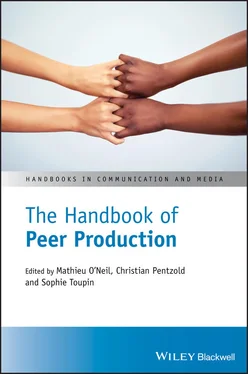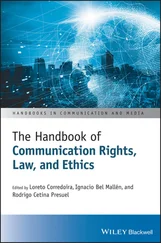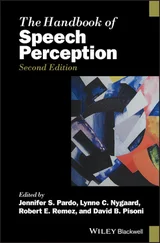Our congratulations to all the authors who worked hard to follow our timeline and recommendations for a job well done – especially those who came to the project late as others had to drop out. We are also grateful that Yochai Benkler and Helen Nissenbaum allowed us to reprint their article “Commons‐Based Peer Production and Virtue.” Thanks to Nils Borchers, George Dafermos, Chris Giotitsas, Vasilis Kostakis, Arwid Lund, and Denise Thwaites for their help during the course of the project.
At Wiley, our thanks go to Haze Humbert who encouraged us to embark on this three‐year endeavor, to Kartiga Ramalingam and Janani Govindankutty who helped us navigate legal issues, as well as to Kelley Baylis, Todd Green, Skyler Van Valkenburgh, and Andrew Minton who supported the volume through various stages of production. Finally, our thanks to Rosemary Morlin for copy‐editing and to Aijth Kumar for putting together the volume’s index.
Mathieu would like to thank Stefan Merten and the Rosa Luxemburg Foundation for flying him to the United Kingdom from Australia to attend the 4th Oekonux conference in Manchester back in the day. In Manchester I met for the first time Michel Bauwens, George Dafermos, Johan Söderberg, Athina Karatzogianni, Stefan Merten, and many other researchers and activists. The conference was so much fun and so inspiring that during the closing plenary session I proposed setting up a journal, which eventually became the Journal of Peer Production . On the way to Manchester from London I had made a stop at the Oxford Internet Institute to attend a workshop on online governance organized by two (at the time) emerging researchers: Malte Ziewitz and Christian Pentzold. Years later, Christian and I sometimes bumped into each other at academic conferences and after I suggested we collaborate, he came up with the idea for this Handbook . Sophie Toupin, who by then had joined the Journal of Peer Production editorial team, had complementary research interests and she proved the perfect choice to join us. Working with Christian and Sophie on this labor of love has been a wonderful and enriching experience.
Thanks to my colleagues at the University of Canberra’s News and Media Research Centre for their unwavering support and sound advice. Thanks also to my research associate Xiaolan Cai as well as to my research partner Rob Ackland at the Australian National University’s Virtual Observatory for the Study of Online Networks for helping us map the online network of peer production actors. Thanks to the Australian National University’s School of Sociology for its continuing support. I am grateful to the University of Canberra’s Faculty of Arts and Design for supporting my Outside Studies Program in 2019, which enabled me to focus on this project and to work with colleagues overseas: George Dafermos (Integral Cooperative, Heraklion), Laure Muselli (Télécom Paris), Giacomo Poderi (IT University of Copenhagen), and last but not least Mélanie Dulong de Rosnay and Francesca Musiani (Centre Internet et Société, CNRS). My parents Mike and Charmian kindly hosted during my time in Paris. At the time of writing (April 2020) my father is fighting Covid‐19. My parents’ politics and humor inspired me. I dedicate this Handbook to them.
Christian would like to thank his colleagues at Bremen and later at Chemnitz University. Both places provided the intellectual environment and academic workplace necessary to pursue such long‐term project. I owe special thanks to my student assistants Lea Neubauer who helped us with the transcriptions of the interviews and Jessica Giesa who compiled the lists of tables and illustrations. Editing this volume and collaborating with Mathieu and Sophie has been an inspiring learning process and I thank them for their dedication, inquisitiveness, and their eye for all the many details that were necessary to make this book happen.
Sophie would like to thank the professors and graduate students in the Communication Studies Department at McGill University who have continued to give her invaluable advice, intellectual support, and community. Joining Mathieu and Christian in editing this Handbook at the beginning of my PhD was at first daunting, but it has proven to be very rewarding. Now that these two long‐term projects are coming to an end – the PhD and the volume – I remain inspired by the many collectives and groups who use the practice of peer production to reimagine the world they want to live in. I dedicate this Handbook to them. Finally, heartfelt thanks to Christian and Mathieu; it has been a delight working with you!
Chapter Summaries
Part I Introduction
1 The Duality of Peer Production: Infrastructure for the Digital Commons, Free Labor for Free‐Riding Firms
Mathieu O’Neil, Sophie Toupin, & Christian Pentzold
This introductory chapter examines a series of productive tensions located in and around peer production: we interrogate the meaning of peer‐to‐peer infrastructure models and find that some forms of peer infrastructure have thrived, whilst others were effectively banned. We review Yochai Benkler’s influential theorization of “commons‐based peer production,” and ask to what extent it embodies Western, first‐world assumptions. We evaluate the relationship of peer production to the dominant economy, considering the rich scholarship on peer production’s transformational potential, which was inspired by Benkler’s model and is often imbued with utopian overtones. At the same time peer infrastructure plays a central role in the digital economy, and we critically examine political economy understandings which hold that peer production has been recuperated by capitalism and enabled new forms of labor exploitation. We also analyze the organizational form which facilitated the emergence of hybridization between commercial firms and communal projects, outline the aims of this Handbook, and summarize its structure and content.
Part II Concepts: Explaining Peer Production
2 Grammar of Peer Production
Vasilis Kostakis & Michael Bauwens
In 2005, Michel Bauwens published The Political Economy of Peer Production , which discussed the principles, characteristics, and the future of the then nascent ecosystem of peer production. This chapter revisits Bauwens’ 2005 article, adopting, expanding, and refining the operational concepts – or “grammar” – he used to define peer‐production projects and the institutional ecosystems that sustain them. Our aim is to provide a framework that would give a theoretical underpinning to the transformative practices of peer production. In a time of deep environmental, social and political crisis, it is important to understand how a new kind of society, based on the centrality of the commons and within a reformed market and state, is possible. This chapter, thus, discusses and introduces new paradigmatic ways of value creation that have the potential to be more radically inclusive and sustainable.
3 Political Economy of Peer Production
Benjamin J. Birkinbine
This chapter provides a framework for understanding the political economy of peer production. As such, I interrogate the intersection of peer production and capitalism along two axes. First, I contextualize the rise of peer production within broader structural changes occurring within capitalism and evaluate the extent to which peer production contradicts, or reinforces, these global economic trends. Second, I draw from more recent theories of commons value circuits to position peer production as dialectically situated between capital and the commons, which highlights the ways in which communities of peer producers intersect with circuits of capital accumulation. The question I explore in the latter part of the chapter is whether the emergent cultural practices within peer production have the capability to subvert the prevailing tendencies of capitalism and offer a path toward a post‐capitalist future.
Читать дальше


![О Генри - Справочник Гименея [The Handbook of Hymen]](/books/407356/o-genri-spravochnik-gimeneya-the-handbook-of-hymen-thumb.webp)









